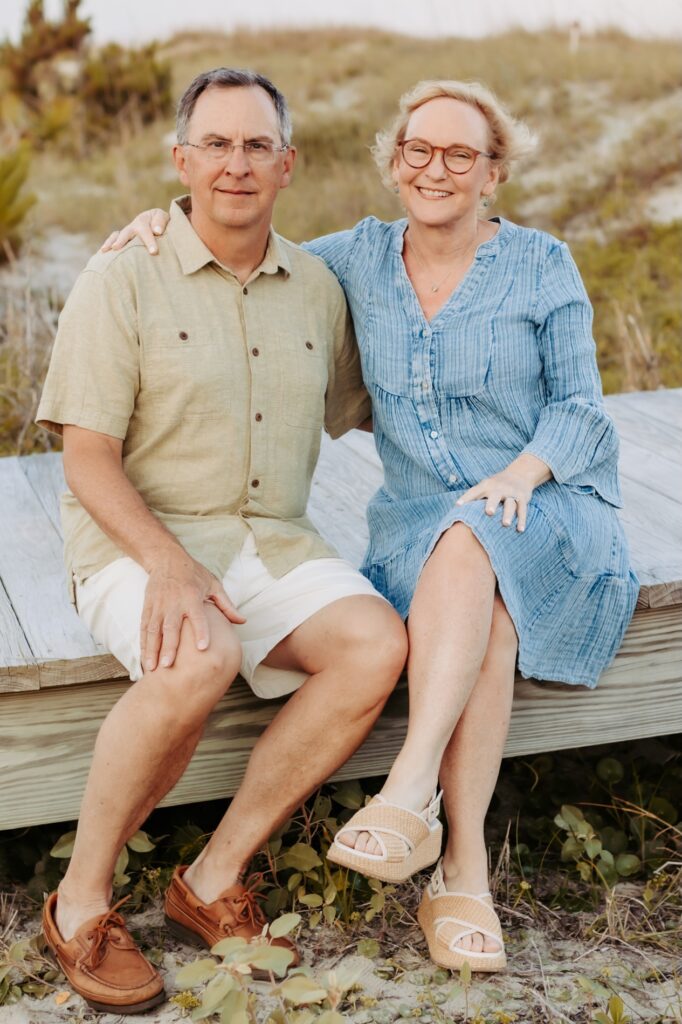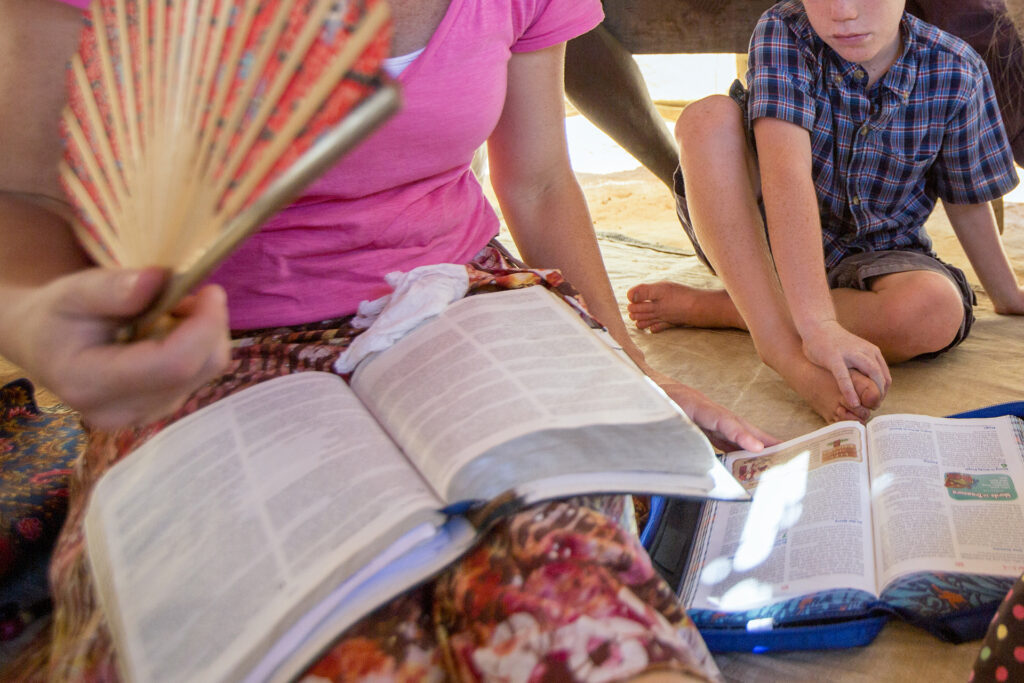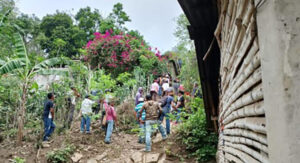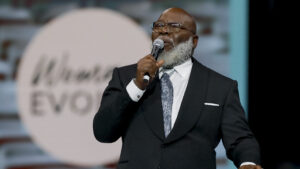
SOUTH ASIA (BP) – Lorie Delk started a business in response to one of the most unusual experiences of her life. The certified speech language pathologist said she knew God was telling her to work with missionary children around the world. She was caught off guard by such a specific call – especially since she did not personally know any missionary children.
“Missionaries were those people we met once a year when they came to missions Sunday at church,” Lorie said.

Nevertheless, with the help of her husband Alan, she pursued God’s call. Guided by the principles of 3 John 5-8 to support those who have gone out for the sake of the Gospel – becoming fellow workers for the truth – the Delks founded Next Generation Therapy Services.
The not-for-profit, private practice provides speech, language and reading therapy at its office in Atlanta, services offered pro bono for families serving around the world. It also developed a reading curriculum created with missionary kids in mind.
“We have tremendous appreciation and respect for these wonderful families who are following God’s call on their lives and doing great work. We want to do what we can to help them on their journey and are privileged to play a small part,” Lorie said.
Next Generation partners with multiple sending organizations to support 85 missionary children around the world. Clinicians attend conferences overseas to provide assessments and consultation for families, and they provide an estimated 260 hours of ongoing therapy for free each month via remote video. Almost two-thirds of these families are IMB missionaries.
Fellow workers for the truth
Owen and Mila Stoddard moved to South Asia as IMB missionaries when their son Jamin was just 6 months old. By the time he was 2, they recognized some unsettling developmental delays.
“We knew that he was different, and we knew that we needed help, but we just couldn’t get it,” Mila said. “Because we were in South Asia, it was very difficult.”
During a homeschool conference in their region, the Stoddards finally met someone who could help. Lorie Delk flew herself to the conference to offer free assessments and consultations to missionary families on invitation from Penelope Stokes, an IMB educational consultant. Lorie first tested Jamin when he was 10 years old.
Mila noticed immediately that both Lorie and Penelope were present when she received Jamin’s test results. Her mind churned with the possibilities that Penelope’s presence implied. She had prepared herself to hear the evaluation revealed learning challenges for Jamin, but she didn’t know how severely he was struggling.

“I’m sitting there, and my head is spinning, like, wow, Penelope is here to tell me that we’re going home,” Mila recalled, considering that Jamin’s challenges might cause them to leave the mission field. “At the end of the results, I started tuning out, just waiting for Penelope to step in at any moment.”
But that’s not what happened. Instead, Lorie began to pull out special resources and show them to Mila.
Though Mila was deeply troubled, she couldn’t help but notice Lorie’s excitement. “She starts putting all these books in front of me. Opens them up and tells me she wants me to do this, and to do this, and this.” Lorie’s excitement came from knowing she had resources that could help Jamin and his parents.
As Mila recalled their meeting, she pointed to God’s generous provision through Lorie.
“She is someone that is not called to go overseas but has a heart for what God is doing among the nations,” Mila said. “She has impacted not just missionaries but places, by keeping people on the field instead of having to come home.”
‘We are not asking you to do this alone’
“I couldn’t make the connection that we weren’t leaving the field,” Mila said. “Lorie told me ‘This is what you’ve got to do, and it’s all going to be OK,’ and I felt, ‘No, it’s not. I am not a professional like you are.’”
Jamin’s results were not good. The numbers revealed he was in the lowest percentile in many areas. But the educational consultant offered encouragement.
“Penelope gently stepped in and said, ‘We are not asking you to do this alone,’” Mila remembered.
“‘They’re going to train you. They’re going to give you the same resources they would use if Jamin went to their offices. And we want you to see if you can help him get better.’”
The Stoddards felt overwhelmed, but their family committed wholeheartedly to a plan to try it for one year, when Jamin would be reevaluated to measure his progress.
“The education consultants with our affinity urged us to trust Next Generation,” Owen said. “They were insistent that they had a good plan, would provide needed training, and would advise us to leave the field if that was best for Jamin.”
Trusting God, year by year
The first year was the hardest, but Mila was determined not to look back and have regrets when Jamin was reevaluated. She recalled five-minute breaks in their daily schedule when she cried out to God.
“There were times when I would just curl up on the bed and cry and let it all out,” Mila said. “And every time I felt that way, the Lord would fill me up. He was just so faithful.”
The next year, Mila and Jamin flew to another country to meet Lorie for his reevaluation. When the results returned, Lorie expressed amazement at Jamin’s improvement.
For the next decade, year by year, as Jamin was reevaluated and made progress, the Stoddards continued to stay in South Asia as missionaries. Mila fought discouragement and spiritual attack as she gave up her time with nationals and teammates to teach Jamin and allow Owen time for ministry, but she knew God had equipped her for this season.
“We have had to hold so loosely to our call and who we feel like we are as people,” Mila said. “Year by year, we’ve had to be OK knowing our identity is in Christ, as the people Christ made us to be, not in our job, not in being missionaries.”
God’s good plan
Years ago, the Stoddards were told Jamin would never go to college. But this spring he finished his freshman year of college in the U.S. – passing his classes and playing on the university’s tennis team.
As he reflected on their last decade, Owen expressed confidence in God’s plan and provision for his family through IMB and its partners.
“I know that the IMB cares for our family and wants our children to be blessed for having been among their ranks,” he said.
Brian Trapnell, vice president of Human Resources for the IMB, stressed that holistic care for missionaries remains a top priority. As IMB looks for ways to increase the longevity of its missionaries, partners like Next Generation Therapy Services – that freely offer time, resources and skills to support missionaries – provide pathways for long-term presence and Gospel advancement.
“The IMB tries to creatively and comprehensively support its missionaries on the field – those doing important, eternity-impacting work,” Trapnell said. “Partners like Next Generation Therapy help us do that. We’re thankful for the invaluable partnerships we have with all our partners to help us keep missionaries on the field to address the world’s greatest problem: lostness.”














